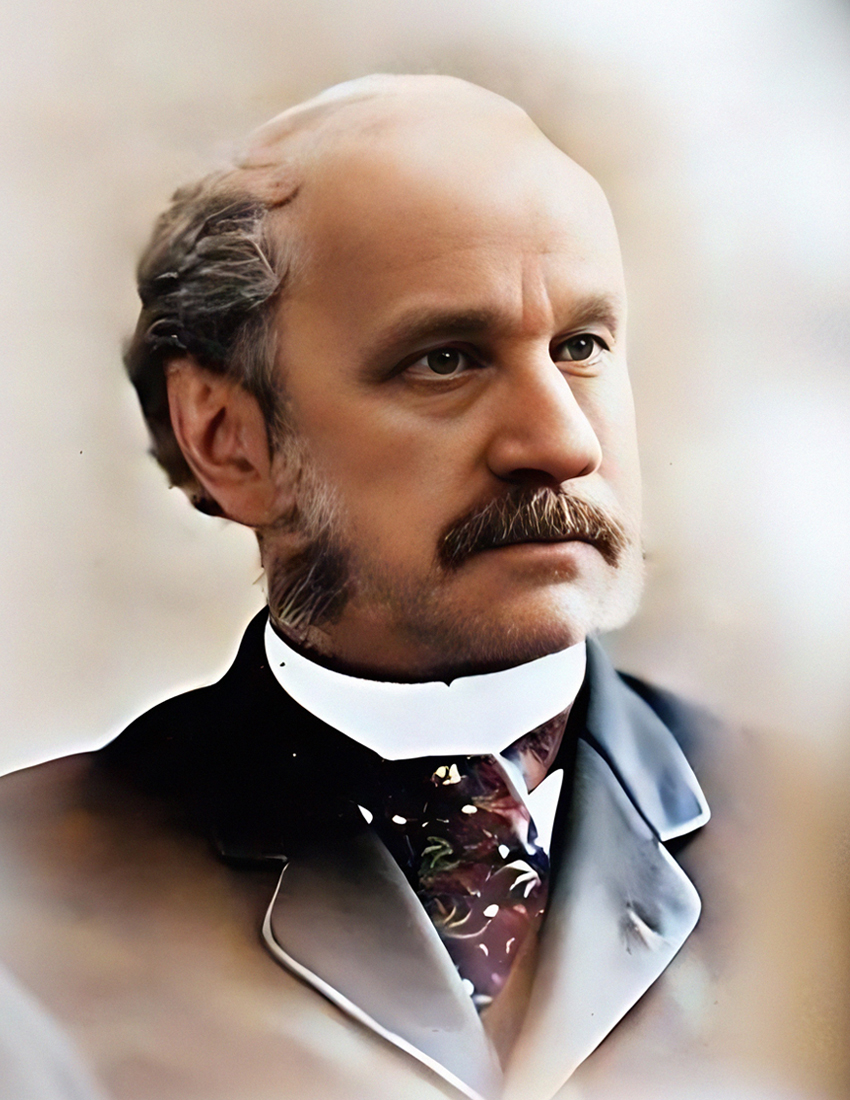Born: March 14, 1826, Buckland, MA.
Died: April 14, 1888, Boston, MA.
Buried: Plain Cemetery, Ashfield, MAs.
William Fiske Sherwin

Hymns by William Sherwin
What was the Chautauqua Movement?
The Chautauqua Movement, which began in 1874, was a groundbreaking adult education initiative in America. Started as a summer training program for Sunday school teachers on Lake Chautauqua, New York, it quickly expanded into a nationwide phenomenon promoting lifelong learning.
Chautauqua assemblies offered lectures, concerts, and cultural programs, bringing education and entertainment to rural communities. William Fiske Sherwin, as the movement’s first music director, played a crucial role in shaping its early musical landscape.
The movement’s influence on American culture was profound, fostering intellectual growth and civic engagement long before the advent of modern mass media. Today, the original Chautauqua Institution continues as a living embodiment of this innovative approach to adult education.
The Harmonious Life of William Fiske Sherwin
In the bustling world of 19th-century American hymnody, few figures struck as resonant a chord as William Fiske Sherwin. Born in 1826 in the quiet town of Buckland, Massachusetts, Sherwin’s life would become a symphony of musical education, composition, and spiritual devotion.
As a young man of fifteen, Sherwin found himself under the tutelage of the renowned Lowell Mason. This early instruction laid the foundation for a lifetime dedicated to sacred music. It was as if God had orchestrated this mentorship, setting Sherwin on a path that would lead him to touch countless lives through his melodies.
A Multifaceted Musical Career
Sherwin’s talents didn’t go unnoticed. He soon found himself teaching voice at the prestigious New England Conservatory of Music. But his influence wasn’t confined to the classroom. As a music director for two publishing companies, including the notable Biglow and Main, Sherwin’s reach extended far beyond the conservatory walls.
It was during his time at Biglow and Main that Sherwin’s collaborative spirit truly shone. He co-edited collections with musical luminaries Robert Lowry and William H. Doane, including the widely used “Chautauqua Carols” in 1878. This collection, born from Sherwin’s involvement with the Chautauqua Movement, became a staple not only at the Institute but in “tent chautauquas” across the nation.
The Chautauqua Connection
Sherwin’s connection to the Chautauqua Movement was no mere footnote in his career. In 1874, Methodist Bishop John Heyl Vincent, recognizing Sherwin’s talents, invited him to serve as music director for a camp he was founding on the shores of Lake Chautauqua. This camp, initially designed for Sunday school teachers, would evolve into the prestigious Chautauqua Institution. Sherwin’s musical direction played no small part in shaping the institution’s early years and its enduring legacy.
A Voice Remembered
George C. Stebbins, a contemporary of Sherwin, left us with a vivid recollection of the man’s musical prowess. In his book “Reminiscences and Gospel Song Stories,” Stebbins wrote:
“I remember well his singing very effectively and artistically the old classic among sacred songs ‘Flee as a bird to your mountain.’ His manner of rendering and his well trained and sympathetic voice made a lasting impact upon me.”
This description paints a picture of a man whose musical gifts were not just technical, but deeply emotive and spiritually moving.
A Lasting Legacy
While Sherwin composed many hymns throughout his career, it is “Break Thou the Bread of Life” that has stood the test of time. Written to accompany lyrics by Mary Lathbury, this hymn continues to be sung in churches around the world. Its opening lines seem to encapsulate Sherwin’s lifelong dedication to spiritual nourishment through music:
Break Thou the bread of life, dear Lord, to me,
As Thou didst break the loaves beside the sea.
Just as Christ broke bread to feed the multitudes, Sherwin’s music continues to feed the souls of worshippers more than a century after his passing.
William Fiske Sherwin’s life was a testament to the power of music in spiritual formation and education. From his early studies with Lowell Mason to his influential role in the Chautauqua Movement, Sherwin’s commitment to sacred music left an enduring impact on American hymnody. Though he may be remembered primarily for one hymn today, his broader contributions to music education and composition have shaped the landscape of church music in ways that continue to resonate with worshippers and musicians alike.

